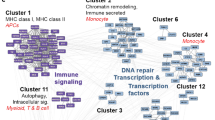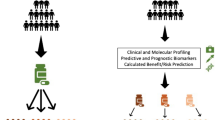Abstract
Background
Systemic sclerosis (SSc) is a connective tissue disease with ethnic differences. Single-nucleotide polymorphisms (SNPs) in the ARID3A, CXCR5, and TNFSF8 genes have been reported to be associated with various autoimmune diseases. The aim of this study was to investigate the association between these SNPs and susceptibility to SSc in a Chinese Han population.
Methods
A case–control study was conducted in 342 patients with SSc and 694 ethnically matched healthy controls. SNPs in ARID3A, CXCR5, and TNFSF8 were genotyped using a Sequenom MassArray iPLEX system, and allele association analyses were performed using the PLINK v1.90 software.
Results
Our study demonstrated that the ARID3A rs10415976 G and CXCR5 rs77871618 T alleles were suggestively associated with patients with SSc (P = 0.049 and P = 0.024, respectively) and TNFSF8 rs1555457 T allele was strongly associated with SSc (P = 0.003). Patients carrying the ARID3A rs350146 TT and TNFSF8 rs1555457 TT genotypes had a significant increased risk of SSc (P = 0.03 and P = 0.004, respectively). Moreover, rs10415976, rs77871618, and rs1555457 were associated with SSc in an additive genetic model (P < 0.05). rs62132345 and rs1555457 were associated with SSc in the dominant genetic model (P < 0.05). rs350146 was associated with SSc in the recessive genetic model (P = 0.029).
Conclusions
ARID3A rs10415976, ARID3A rs350146, and CXCR5 rs77871618 were suggestively associated with SSc and TNFSF8 rs1555457 was strongly associated with SSc in the Chinese Han population in this study.
Key Points • This case-control study determined that ARID3A rs10415976, ARID3A rs350146 and CXCR5 rs77871618 were suggestively associated with SSc and TNFSF8 rs1555457 was strongly associated with SSc in the Chinese Han population. • The differences in these results compared with previous studies may be a result of ethnic and racial differences. |


Similar content being viewed by others
Data availability
Not applicable.
Abbreviations
- ARID:
-
A-T-rich interaction domain
- CI:
-
Confidence interval
- GWAS:
-
Genome-wide association study
- HWE:
-
Hardy-Weinberg equilibrium
- ILD:
-
Interstitial lung disease
- IPF:
-
Idiopathic pulmonary fibrosis
- OR:
-
Odds ratio
- PAH:
-
Pulmonary arterial hypertension
- PBC:
-
Primary biliary cholangitis
- PCR:
-
Polymerase chain reaction
- PUMCH:
-
Peking Union Medical College Hospital
- RA:
-
Rheumatoid arthritis
- SLE:
-
Systemic lupus erythematosus
References
Denton CP, Khanna D (2017) Systemic sclerosis. Lancet 390(10103):1685–1699. https://doi.org/10.1016/s0140-6736(17)30933-9
Gabrielli A, Avvedimento EV, Krieg T (2009) Scleroderma. N Engl J Med 360(19):1989–2003. https://doi.org/10.1056/NEJMra0806188
Qiu F et al (2017) A genome-wide association study identifies six novel risk loci for primary biliary cholangitis. Nat Commun 8:14828. https://doi.org/10.1038/ncomms14828
Garton J et al (2019) New Frontiers: ARID3a in SLE. Cells 8(10):1136. https://doi.org/10.3390/cells8101136
Hussain SK et al (2013) Serum levels of the chemokine CXCL13, genetic variation in CXCL13 and its receptor CXCR5, and HIV-associated non-hodgkin B-cell lymphoma risk. Cancer Epidemiol Biomarkers Prev 22(2):295–307. https://doi.org/10.1158/1055-9965.Epi-12-1122
Yu Q et al (2017) Aberrant Humoral Immune Responses in Neurosyphilis: CXCL13/CXCR5 Play a Pivotal Role for B-Cell Recruitment to the Cerebrospinal Fluid. J Infect Dis 216(5):534–544. https://doi.org/10.1093/infdis/jix233
Mells GF et al (2011) Genome-wide association study identifies 12 new susceptibility loci for primary biliary cirrhosis. Nat Genet 43(4):329–332. https://doi.org/10.1038/ng.789
Wang L et al (2015) CXCR5+ CD4+ T follicular helper cells participate in the pathogenesis of primary biliary cirrhosis. Hepatology 61(2):627–638. https://doi.org/10.1002/hep.27306
Liu C et al (2018) Increased circulating CD4(+)CXCR5(+)FoxP3(+) follicular regulatory T cells correlated with severity of systemic lupus erythematosus patients. Int Immunopharmacol 56:261–268. https://doi.org/10.1016/j.intimp.2018.01.038
Ricard L et al (2019) Circulating follicular helper T cells are increased in systemic sclerosis and promote plasmablast differentiation through the IL-21 pathway which can be inhibited by ruxolitinib. Ann Rheum Dis 78(4):539–550. https://doi.org/10.1136/annrheumdis-2018-214382
Im C et al (2018) Genome-wide haplotype association analysis of primary biliary cholangitis risk in Japanese. Sci Rep 8(1):7806. https://doi.org/10.1038/s41598-018-26112-1
Barbieri A et al (2015) Characterization of CD30/CD30L(+) Cells in Peripheral Blood and Synovial Fluid of Patients with Rheumatoid Arthritis. J Immunol Res 2015:729654. https://doi.org/10.1155/2015/729654
van den Hoogen F et al (2013) 2013 classification criteria for systemic sclerosis: an American college of rheumatology/European league against rheumatism collaborative initiative. Ann Rheum Dis 72(11):1747–1755. https://doi.org/10.1136/annrheumdis-2013-204424
LeRoy EC et al (1988) Scleroderma (systemic sclerosis): classification, subsets and pathogenesis. J Rheumatol 15(2):p. 202–5. https://www.ncbi.nlm.nih.gov/pubmed/3361530
Liu C et al (2021) Association of GTF2I, NFKB1, and TYK2 Regional Polymorphisms With Systemic Sclerosis in a Chinese Han Population. Front Immunol 12:640083. https://doi.org/10.3389/fimmu.2021.640083
Wilsker D et al (2002) ARID proteins: a diverse family of DNA binding proteins implicated in the control of cell growth, differentiation, and development. Cell Growth Differ 13(3):95–106
Wilsker D et al (2005) Nomenclature of the ARID family of DNA-binding proteins. Genomics 86(2):242–251. https://doi.org/10.1016/j.ygeno.2005.03.013
Ma K et al (2003) E2FBP1/DRIL1, an AT-rich interaction domain-family transcription factor, is regulated by p53. Mol Cancer Res 1(6):438–444
Song M et al (2014) High expression of AT-rich interactive domain 3A (ARID3A) is associated with good prognosis in colorectal carcinoma. Ann Surg Oncol 21(Suppl 4):S481–S489. https://doi.org/10.1245/s10434-013-3435-2
Yoon G et al (2019) ARID3A Positivity Correlated With Favorable Prognosis in Patients With Residual Rectal Cancer After Neoadjuvant Chemoradiotherapy. Anticancer Res 39(6):2845–2853. https://doi.org/10.21873/anticanres.13413
Tang J et al (2020) ARID3A promotes the development of colorectal cancer by upregulating AURKA. Carcinogenesis. https://doi.org/10.1093/carcin/bgaa118
Ward JM et al (2014) Disease activity in systemic lupus erythematosus correlates with expression of the transcription factor AT-rich-interactive domain 3A. Arthritis Rheumatol 66(12):3404–3412. https://doi.org/10.1002/art.38857
Charbonneau B et al (2013) CXCR5 polymorphisms in non-Hodgkin lymphoma risk and prognosis. Cancer Immunol Immunother 62(9):1475–1484. https://doi.org/10.1007/s00262-013-1452-4
Zhang J et al (2014) Three SNPs in chromosome 11q23.3 are independently associated with systemic lupus erythematosus in Asians. Hum Mol Genet 23(2):524–33. https://doi.org/10.1093/hmg/ddt424
Sawcer S et al (2011) Genetic risk and a primary role for cell-mediated immune mechanisms in multiple sclerosis. Nature 476(7359):214–219. https://doi.org/10.1038/nature10251
Lindén M et al (2017) Sex influences eQTL effects of SLE and Sjögren’s syndrome-associated genetic polymorphisms. Biol Sex Differ 8(1):34. https://doi.org/10.1186/s13293-017-0153-7
Asai Y et al (2019) Aberrant populations of circulating T follicular helper cells and regulatory B cells underlying idiopathic pulmonary fibrosis. Respir Res 20(1):244. https://doi.org/10.1186/s12931-019-1216-6
Sun X et al (2008) A critical role of CD30 ligand/CD30 in controlling inflammatory bowel diseases in mice. Gastroenterology 134(2):447–458. https://doi.org/10.1053/j.gastro.2007.11.004
Gaur U, Aggarwal BB (2003) Regulation of proliferation, survival and apoptosis by members of the TNF superfamily. Biochem Pharmacol 66(8):1403–1408. https://doi.org/10.1016/s0006-2952(03)00490-8
Zinovieva E et al (2011) Systematic candidate gene investigations in the SPA2 locus (9q32) show an association between TNFSF8 and susceptibility to spondylarthritis. Arthritis Rheum 63(7):1853–1859. https://doi.org/10.1002/art.30377
Jiang Y et al (2017) Associations between TNFSF4, TNFSF8 and TNFSF15 and Behçet’s disease but not VKH syndrome in Han Chinese. Oncotarget 8(62):105037–105046. https://doi.org/10.18632/oncotarget.22064
Sun X et al (2010) CD30 ligand/CD30 plays a critical role in Th17 differentiation in mice. J Immunol 185(4):2222–2230. https://doi.org/10.4049/jimmunol.1000024
Xing X et al (2020) IFN-γ(+) IL-17(+) Th17 cells regulate fibrosis through secreting IL-21 in systemic scleroderma. J Cell Mol Med 24(23):13600–13608. https://doi.org/10.1111/jcmm.15266
Funding
This research was supported by the grants from the National Key Research and Development Program of China (Grants 2018YFE0207300) and the National Natural Science Foundation of China (Grants 81871302). This work was supported by Beijing Key Clinical Specialty for Laboratory Medicine—Excellent Project (No. ZK201000).
Author information
Authors and Affiliations
Contributions
CL wrote the manuscript. SY and HC conducted the study. ZW and LL prepared the materials. YL supported the research.
Corresponding author
Ethics declarations
Ethics approval and consent to participate
This study was approved by the ethics committee of the PUMCH, and informed consent was obtained from all the recruited participants.
Consent for publication
All authors gave consent to publish.
Disclosures
None.
Additional information
Publisher's note
Springer Nature remains neutral with regard to jurisdictional claims in published maps and institutional affiliations.
Rights and permissions
Springer Nature or its licensor (e.g. a society or other partner) holds exclusive rights to this article under a publishing agreement with the author(s) or other rightsholder(s); author self-archiving of the accepted manuscript version of this article is solely governed by the terms of such publishing agreement and applicable law.
About this article
Cite this article
Liu, C., Yan, S., Chen, H. et al. Several genetic variants associated with systemic sclerosis in a Chinese Han population. Clin Rheumatol 42, 773–781 (2023). https://doi.org/10.1007/s10067-022-06409-3
Received:
Revised:
Accepted:
Published:
Issue Date:
DOI: https://doi.org/10.1007/s10067-022-06409-3




